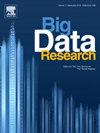探讨意大利高中、社会经济因素和学位课程对高等教育成功的影响
IF 4.2
3区 计算机科学
Q2 COMPUTER SCIENCE, ARTIFICIAL INTELLIGENCE
引用次数: 0
摘要
本研究调查了意大利高等教育成功的决定因素,重点关注学生在第一年和第二年的成绩。我们使用了2015年至2019年入学学生的人口数据,整合了高中环境和学位课程特征的信息。这个丰富的数据集采用了两步方法:第一步定义了高中质量和学位课程难度的指标;第二种方法估计了一个多项式逻辑,以评估学生被分类为常客、流失者、有辍学风险和辍学者的概率的决定因素。通过利用学生社会经济背景和学校自我评估有效性评估的额外信息,对2019年队列的数据进行了进一步调查。结果表明,学生的高中背景、社会经济条件、毕业后的净工资前景和所选学位专业毕业生的职业率显著影响学业成功和学生的学业坚持。总的来说,研究结果提供了对大学成功决定因素的全面看法,并在不同的学生类别中观察到特定的模式。本文章由计算机程序翻译,如有差异,请以英文原文为准。
Exploring the impact of high schools, socioeconomic factors, and degree programs on higher education success in Italy
This study investigates the determinants of tertiary education success in Italy, focusing on students' outcomes between the first and second years. We use population data of students enrolled between 2015 and 2019, integrating information on high school environments and degree program characteristics. This rich dataset has been exploited with a two-step approach: the first step defines indicators for high school quality and degree program difficulty; the second estimates a multinomial logit to assess the determinants of students' probability of being classified as regulars, churners, at risk of dropout, and dropouts. Data regarding the 2019 cohort have been further investigated by exploiting the additional information on students' socioeconomic backgrounds and schools' self-assessed effectiveness evaluations. Results indicate that students' high school backgrounds, socioeconomic conditions, and post-graduation prospects in terms of net wages and occupation rates of graduates in the chosen degree program significantly influence academic success and students' academic persistence. Overall, the results offer a comprehensive view of the determinants of university success, with specific patterns observed across the different student categories.
求助全文
通过发布文献求助,成功后即可免费获取论文全文。
去求助
来源期刊

Big Data Research
Computer Science-Computer Science Applications
CiteScore
8.40
自引率
3.00%
发文量
0
期刊介绍:
The journal aims to promote and communicate advances in big data research by providing a fast and high quality forum for researchers, practitioners and policy makers from the very many different communities working on, and with, this topic.
The journal will accept papers on foundational aspects in dealing with big data, as well as papers on specific Platforms and Technologies used to deal with big data. To promote Data Science and interdisciplinary collaboration between fields, and to showcase the benefits of data driven research, papers demonstrating applications of big data in domains as diverse as Geoscience, Social Web, Finance, e-Commerce, Health Care, Environment and Climate, Physics and Astronomy, Chemistry, life sciences and drug discovery, digital libraries and scientific publications, security and government will also be considered. Occasionally the journal may publish whitepapers on policies, standards and best practices.
 求助内容:
求助内容: 应助结果提醒方式:
应助结果提醒方式:


